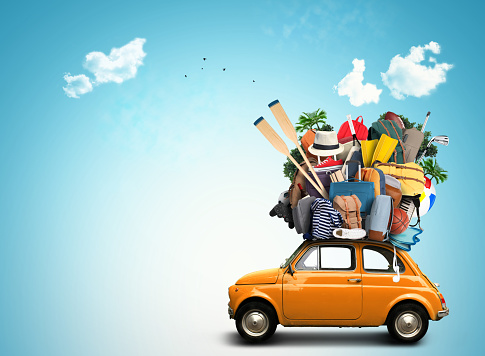When Summertime hits, it is often a rite of passage to hit the road – be it to the local beach or lake or to more ambitious locales. While much of the summer travel focus is righty on mapping out what friends and family to visit or what book to read, safety shouldn’t find itself at the bottom of our priority list. In fact, it should be quite the opposite as it is always wise to be prepared and pay attention to your surroundings. As someone famous once said, “an ounce of prevention is worth a pound of cure.”
While at the risk of sounding too parental, it is always smart to incorporate a few best practices while out and about on your summer adventures. Here are a few tips to keep you and your loved ones safe. . .

- Write Down Emergency Information: If you are traveling to a different area, it’s a good idea to have local police, ambulance, and hospital telephone numbers in case an emergency arises. When disaster strikes you may be too stressed or panicked to think straight. Putting these numbers on paper or in your phone will save time and could be important in case of emergency.
- Have a Travel Plan: If traveling by car, map out your route and know where the rest areas and gas stations are located. Running out of gas in an unfamiliar area can make for stressful experience. With electric vehicles becoming more popular, it makes sense to understand the charging network along your route.
- Pack a First Aid Kit: Injuries can happen anywhere no matter how careful you are. The probably only increases if traveling with young kids! That’s why having a basic first aid kit is always a good idea. It doesn’t have to have everything, just the basics. Some of the basics you should have on hand include: Band-Aids, antiseptic wipes, Ibuprofen/Tylenol or aspirin, antihistamine tablets, tweezers, gauze bandage, ice pack, and tape.
- Lock Up Your Valuables: It’s never a good idea to travel with anything super valuable, but if you must, you should consider ways to minimize the opportunities for theft. For example, travel backpacks that are zipped and locked seem to be a sufficient deterrent to any thief. However, this precaution is only so effective, so never leave bags unattended and alert your travel partners if needing to take a quick nap before a flight.
- Hide Emergency Funds: While it’s good to do everything you can to prevent the worst-case scenarios, it’s equally smart to assume it’ll happen and plan ahead for it. How much emergency cash should you have? It’s a personal preference but on average $350 – $400 should get a place to sleep or get a ride. Be sure not to keep all of your cash in one spot, rather spread it out in a few unsuspecting places. The amount of cash you carry can be adjusted if you are comfortable with mobile payment options, of which there are numerous. Further, having multiple payment options available to you is wise given cash and certain payment platforms are not universally accepted.
- Use ATMs Wisely: You may have been told to cover your hand when keying in your PIN number at an ATM. That’s good advice worth following, both for others looking over your shoulder, as well as hidden cameras trying to record your PIN. Always scrutinize any ATM machines and the traffic around them before you use them. Another overlooked factor is where ATMs are located. Not all ATMs are created equal and it is advisable to use bank affiliated machines versus other network ATMs housed in public venues, say convenience stores (where security isn’t as closely monitored).
- Food & Water Safety: Don’t be scared to try eating new foods – that’s part of the fun of traveling! However, it pays to be observant of how the food is prepared. If traveling internationally, pack translation cards to express your allergies. Fully cooked food is always the safest. Only eat peel-able fruit to avoid bacteria. For water, it is recommended that you get a filtered water bottle or buy bottled water.
- Let Friends/Family Know Your Itinerary: It’s important to let your friends or family know when and where you are traveling and when you are expected back. Make sure to let them know that you have returned from your trip. While the goal is to often “get away,” it’s helpful to have your community be in the loop in the event an issue arises.
- Consider Travel Insurance: You never think you need it, until you do. If you’re really worried about the safety of yourself and your gear while you travel, it can be hard to fully relax. Everyone should carry some kind of health and property insurance when traveling. Why? Because things do happen whether you think it will or not. Be sure to carry your card or information in case you need to reference your coverage.
- Check State Department Website: If you are traveling internationally, it’s important to be aware of any current warnings or threats to the safety of visitors in and around your destination. This advice might be on the overly cautious side, but knowing the warnings in advance is always good to know in avoiding potential problem areas.
- Trust Your Instincts! Your body sees and hears more things than you could ever process into coherent thought. Your body might sense signs of danger before your brain is fully aware. This is why gut feelings are always worth examining. If you’re feeling uneasy and you don’t know why, try not to write it off as irrational fear. Stop and pay close attention to the situation. It’s easy to dismiss your instincts as “silly” but never treat them that way. Those gut feelings and intuition have kept us safe for millions of years.


